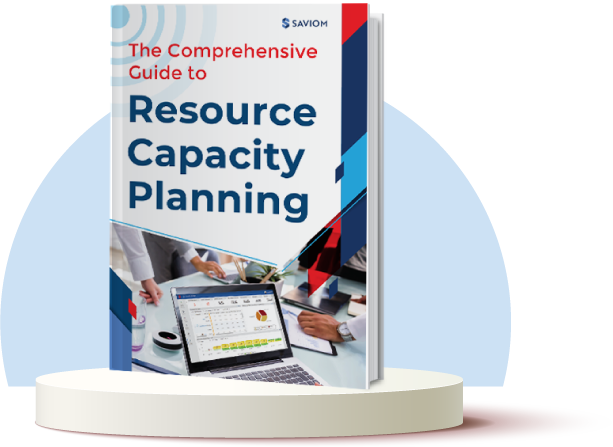According to research,
Productive companies have 30-50% higher operating margins than their counterparts.
So, it is evident that every organization must aim for maximum productivity. It increases profitability and promotes organizational growth.
However, organizations can only expect a productive workforce when they cater to their professional needs, expectations, and engagement. When employees are satisfied and feel valued, they will exhibit 100% commitment towards business success.
Now the pertinent question is, how can one enhance and maintain productivity?
One of the primary techniques employers can deploy is empowering their workforce. Empowerment follows the principle of granting autonomy and decision-making power to the workforce.
It gives employees more freedom over their work and ensures accountability. In addition, when employees have control over their work process, it also enhances their engagement and productivity.
This article will explain in detail how employee empowerment contributes to enhanced productivity.
First, let’s define.
What is employee empowerment?
Employee empowerment is a management strategy where the workforce is given the necessary tools and resources to manage tasks and make decisions without constant supervision. It is the opposite of micromanagement, where managers closely monitor and control employees’ every activity.
Through empowerment, employees gain a certain degree of autonomy and responsibility regarding their specific projects and tasks. As a result, the workforce can function with less oversight from the management. However, practicing empowerment demands a high degree of trust between employers and employees.
Now that the basics are covered, let’s look at why employee empowerment is essential for an organization.
Why is employee empowerment important?
Employee empowerment plays a significant role in creating a positive work environment that promotes individual and organizational growth. It makes employees feel valued and respected as they are delegated critical tasks.
It also encourages employees to choose their areas of interest across functions based on their skills. This way, they put extra effort and commitment into the projects at hand. When employees give in more than 100%, it naturally improves the overall quality of the work.
Once employees are highly motivated and engaged in their work, they will act as brand ambassadors and recommend the organization to potential employees.
Empowering work culture will also help attract top talent and increase the company’s retention rates.
As discussed earlier, employee empowerment evokes a sense of ownership and accountability. Furthermore, when employees feel entrusted, it will boost their satisfaction and loyalty, which plays an instrumental role in enhancing productivity.
The following section discusses the various ways in which empowerment improves the productivity of an organization.
How does employee empowerment enhance productivity?
As mentioned above, employee empowerment is crucial for both individual development and organizational profitability. The section below discusses some ways in which empowerment can help you form a productive workforce,
Fosters accountability and a sense of responsibility
Delegating significant tasks and projects to capable employees makes them realize that their managers trust their skills and capabilities to complete the project efficiently. For example, suppose you are managing a software development project. In that case, you can ask the software developer to form a blueprint based on the client’s expectations instead of providing the design yourself. It will help the developer be more proactive while unleashing their creativity and increase a sense of commitment.
Since managers entrust employees with responsibilities, they will be more accountable at work to keep their trust intact. Therefore, they will work harder and avoid errors as they feel responsible for the results. Moreover, having accountability will ensure active participation and involvement, thereby improving their performance and productivity.
Boosts employee engagement and motivation
Empowering your employees is synonymous with giving them leeway to explore ways to accomplish tasks within a stipulated time. Thus, it makes them feel trusted and valued and boosts their confidence. Autonomy also enables the workforce to present their innovative ideas and offer diverse perspectives that can help resolve a challenge faster.
Moreover, when employees understand how their efforts boost the company’s overall growth, they will go the extra mile and work harder to support organizational goals. All these cumulatively elevates the sense of belonging, responsibility, and engagement, which leads to a better work rate.
Provides a fair platform for innovation
Empowerment fosters creativity and innovation through task ownership. When employees are encouraged to go beyond their horizons and innovate, they will bring a fresh perspective to the table.
Thus, empowerment promotes innovation by providing employees a platform to share and deliver their unique ideas and opinions and, if feasible, translate them into reality. When these individuals come from different backgrounds with different skillsets, they open the doors for more out-of-the-box and novel ideas. If their ideas turn into reality, they will feel a sense of achievement, and if they don’t materialize for a specific reason, they still feel encouraged to express their thoughts. Either way, both circumstances increase their commitment to work harder and put in their best efforts.
Promotes continuous improvement through regular feedback
Constructive feedback is an integral part of employee empowerment. It will help managers review employees’ performance and identify the areas of improvement. Accordingly, employees can understand the performance gaps and work on filling them. It will also help them learn, upskill and grow professionally.
Feedback offers employees a path of self-improvement and a sense of direction through various suggestions and inputs from the managers. As a result, they identify their true potential and push their limits to go beyond their comfort zone and deliver exemplary results. In addition, feedback reflects the active participation of the employer in the employee’s development. Thus, it motivates them to work harder and be more productive.
Read More: 7 Proven Ways to Give Constructive Feedback to Your Employees
Eliminates micromanagement and garners a positive work environment
Micromanagement is the opposite of employee empowerment, wherein managers exercise excessive control over every minor detail of an employee’s work. Consequently, it lowers the productivity and performance of the workforce as they are under excessive supervision, which hampers their trust and belongingness. Furthermore, since managers are highly involved in projects, employees do not have any autonomy over their work. Therefore, it affects their creativity and leads to disengagement.
A survey on micromanagement states,
71% of respondents said being micromanaged interfered with their job performance, while 85% said their morale was negatively impacted
The whole idea of employee empowerment is to eliminate this practice. When employees are entrusted with their work, it negates the feeling of resentment and allows them to build a positive relationship with their managers. This, in turn, will lead to a positive work environment, which is a significant contributor to better productivity.
Provides diverse opportunities for professional growth
Managers use methods like skill-building and coaching to empower their workforce. They provide upskilling programs and shadowing to train talented employees for new roles. Instead of the traditional hierarchical structure, many organizations allow lateral movements across functions. This allows cross-functional collaboration and helps employees diversify their work portfolio by participating in multi-faceted projects.
In addition, attaining new skills and competencies will make employees more efficient and productive, increasing the quality of deliverables.
The strategies mentioned above will help managers enhance workforce productivity through empowerment. Pairing these with robust resource management software will provide you with an extra edge.
Let’s take a look,
Read More: Importance of skill development in making your workforce future-ready
How does resource management software empower employees?
In an employee-centric organization, it is imperative to empower your workforce and tap into their maximum potential. Enterprise-grade resource management software helps you achieve that and more. It helps create vacancies and publish the requirements across the enterprise so that every relevant resource matching the qualifying criteria can show interest.
Then the resource managers can consider employee’s interests along with the required skills, experience, capacity, availability, etc. Accordingly, managers can allocate tasks to best-fit resources based on their interests and ability. This automatically engages the resources and will propel them to perform better and stay productive.
Read More: Maximize Profitable Resource Utilization with Modern Resource Management Solution
Conclusion
It is now evident that empowering employees can enhance productivity and increase profitability.
Below are some additional tips managers can use to empower their workforce:
- Grant autonomy and authority overwork.
- Promote a culture of trust and respect
- Delegate responsibilities and tasks
- Provide employees with tools and resources to enhance work efficiency
- Communicate roles and responsibilities
- Encourage employees to take calculated risk and learn from it
- Be open to mistakes and help them course-correct it
- Provide regular constructive feedback
- Promote an open-door policy
- Invest in training and upskilling programs
- Reward and recognize employees’ hard work and achievements
The Glossary
Read More: Glossary of Resource Workforce Planning, Scheduling and Management
The SAVIOM Solution
SAVIOM is the market leader in offering the most powerful and configurable solutions for managing enterprise resources efficiently and effectively. Having more than 20 years of experience, this Australian-based MNC has a global presence in over 50 countries. It is also popular with more than 100 customers and helps them achieve their business goals. SAVIOM also has products for project portfolio management, professional service automation, and workforce planning software which can be easily customized as per business requirements












